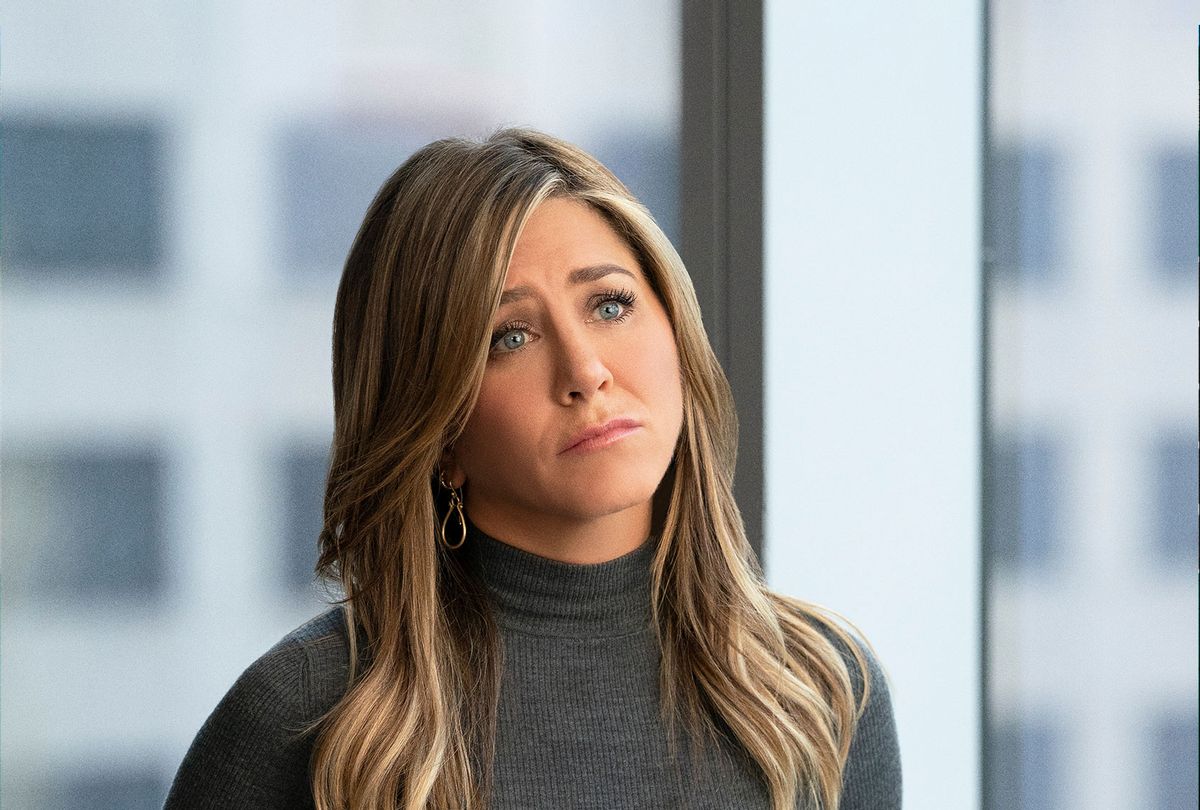The One Time Jennifer Aniston Let Her Guard Down
Over the course of many years working alongside Jennifer Aniston, one of her longtime co-stars witnessed something he would never forget. Not a grand moment on set, not a huge laugh shared behind the scenes, but a rare, quiet fracture in the armor she so carefully wore.
He had seen Jennifer in every kind of situation a set could offer—pressure-packed days, emotional breakdowns written into the scripts, last-minute rewrites, exhausting hours under blinding lights. And through it all, she remained composed. Graceful. Professional. A pillar, even when everything around her seemed chaotic.
“She was always the calm in the storm,” he recalled. “No matter what was happening—whether the scene wasn’t working, whether the director was losing patience, whether someone else was having a bad day—Jennifer kept the room grounded. She knew how to carry herself, how to lift others up without making it obvious she was doing it. She had this invisible strength.”
But there was one day that broke the pattern.
It wasn’t during a live taping. It wasn’t even during a monumental moment in the show. It was an ordinary scene—technically simple but emotionally heavy. A scene where, ironically, Jennifer didn’t have to cry or scream or collapse dramatically. She just had to exist in the silence of heartbreak, to show a character trying to hold herself together when everything inside her was falling apart.

From the outside, it seemed like just another challenging day at work. But something deeper was happening, something no one could see—until it cracked through.
The actor described it vividly: “We had been rehearsing all morning. Everything seemed fine. Jennifer hit every mark, remembered every line, smiled between takes. But then, right before a critical take, something shifted.”
Without a word, Jennifer suddenly set down her script, turned, and walked out of the room.
No tantrum. No excuse. No explanation.
The set fell silent. No one moved. No one chased after her. It wasn’t anger. It wasn’t frustration. It was something different—something heavier.
A few minutes later, she returned. She didn’t try to apologize or make light of the moment. She simply stood there for a beat, as if gathering herself, then exhaled a long, trembling sigh.
“I hate performing when my heart’s breaking,” she said quietly.
That was all.
No one asked what she meant. No one dared. In that instant, it was clear to everyone that whatever Jennifer was carrying that day wasn’t something fictional. It wasn’t scripted heartbreak. It was real. It was hers.

And more than anything, it was something she had become masterful at hiding.
The co-star admitted later, “It wasn’t her losing her temper that stayed with me. It was the realization of how much she had been holding inside all those years. How much effort it must have taken, every single day, to be ‘on,’ to be the person everyone else needed her to be—while her own heart was sometimes shattered behind the scenes.”
It made him, and many others on set that day, look at her differently. Not with pity, but with a deeper kind of respect. Jennifer Aniston wasn’t just the easygoing, radiant actress who charmed the world. She was a woman who knew how to carry her pain with grace, even when it cost her more than anyone realized.
In the years since, that moment was never discussed openly again. It didn’t need to be. It became a silent understanding among those who witnessed it: that behind the smiles, behind the impeccable performances, lived a heart that had fought—and kept fighting—to stay open.
To this day, that co-star says he thinks about that moment more often than he probably should. Not because it was dramatic. Not because it changed anything outwardly.
But because, in a room full of people paid to pretend, Jennifer Aniston showed something achingly real—and trusted them enough to let it show, even just for a breath.
And sometimes, that kind of honesty leaves a mark deeper than any scripted line ever could.



